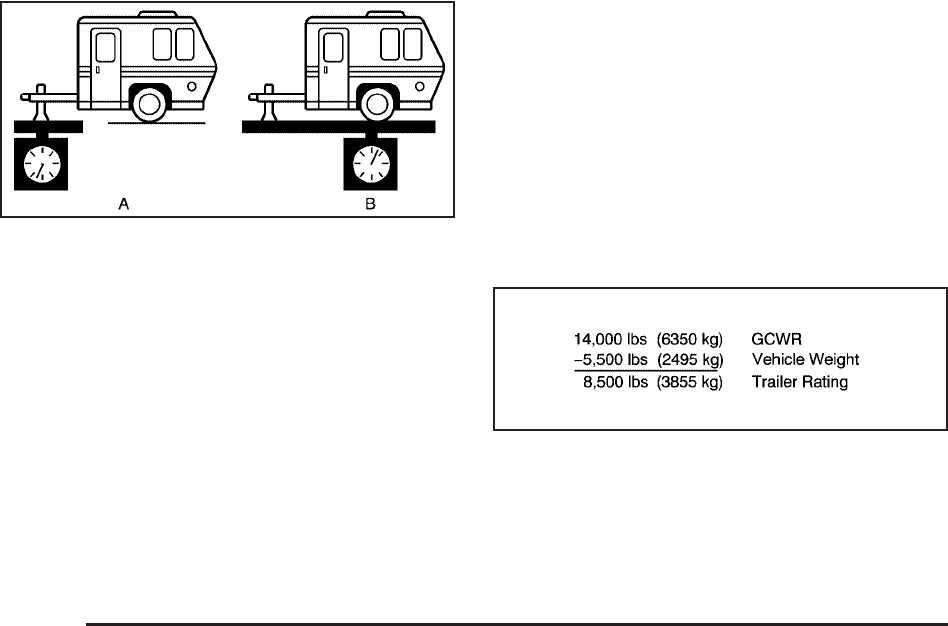
If you are using a weight-carrying hitch, the trailer
tongue (A) should weigh 10 percent of the total loaded
trailer weight (B). If you are using a weight-distributing
hitch, the trailer tongue (A) should weigh 12 percent
of the total loaded trailer weight (B).
After you have loaded your trailer, weigh the trailer and
then the tongue, separately, to see if the weights are
proper. If they are not, you may be able to get them right
simply by moving some items around in the trailer.
Trailering may be limited by the vehicle’s ability to carry
tongue weight. Tongue weight cannot cause the vehicle
to exceed the GVWR (Gross Vehicle Weight Rating) or
the RGAWR (Rear Gross Axle Weight Rating). The effect
of additional weight may reduce your trailering capacity
more than the total of the additional weight.
Consider the following example:
A vehicle model base weight is 5,500 lbs (2 495 kg);
2,800 lbs (1 270 kg) at the front axle and 2,700 lbs
(1 225 kg) at the rear axle. It has a GVWR of 7,200 lbs
(3 266 kg), a RGAWR of 4,000 lbs (1 814 kg) and a
GCWR (Gross Combination Weight Rating) of
14,000 lbs (6 350 kg). The trailer rating should be:
You can expect tongue weight to be at least 10 percent of
trailer weight (850 lbs (386 kg)) and because the weight
is applied well behind the rear axle, the effect on the
rear axle will be greater than just the weight itself, as
much as 1.5 times as much. The weight at the rear axle
could be 850 lbs (386 kg) X 1.5 = 1,275 lbs (578 kg).
4-34


















